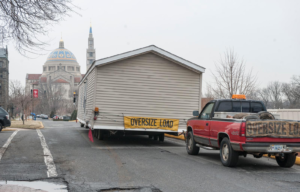The Importance of Respectful Conversations

Image courtesy of John Hain from Pixabay
By Anthony Curioso
This is an independently submitted op-ed for our Quill section. Views and statements made in this article do not necessarily reflect the opinions of The Tower.
I am pro-choice and a proud Democrat. When I chose to come to the Catholic University of America (CUA) as a freshman this year, a young woman who had graduated from CUA in the Class of 2021, and whom I knew vaguely from being in a Boston-area community choir with her, reached out to me personally to let me know that the University was very conservative. She warned me that her experience at Catholic was vastly different from her experience growing up in the liberal bubble of Boston. I expected that if I were to share my political views, most people would give me a hard time for what I believed.
Much to my surprise, however, I noticed that my fellow students here at CUA were far more open-minded than my former choir-mate led me to believe when she reached out. Even if they do not agree with me, most people here show a genuine interest in learning about my perspective on whatever issue we are discussing, thus disproving the common stereotype that people who disagree, especially on politics, will never be willing to hear each other out.
I like to roll my wheelchair over to the tables in the Pryzbyla Center when different student organizations are tabling. When the e-boards of the more conservative groups are advertising, they are always willing to hear me out, even though I have a vastly different opinion on many of the issues they discuss. For example, last semester, I had a great conversation about freedom with the chair of CUA’s branch of the Young Americans for Freedom (YAF), senior Gabrielle Dankanich, and the rest of her e-board. I have also had many discussions with the e-board of the CUA College Republicans, which proved enlightening for both them and me because we got the chance to hear exactly where we stood on a variety of issues. At one point, Gabrielle and I were also talking about potentially having a YAF event where myself and other liberal students on campus would come in and explain why we hold some of the views that we do; we have yet to discuss the logistics of such an event, but I am hopeful that we can make it happen.
Additionally, I have had many conversations with my fellow students at CUA in which I explain my position on abortion – a highly relevant topic these days. In every single one of these conversations, the person I am speaking with has always been very interested in hearing my position, and I can say the same about hearing theirs.
I am of the opinion that having respectful discussions such as these regarding our politics is not just possible, but it is necessary to cultivate empathy between people or groups who may otherwise have significant conflict. I firmly believe that as long as we give each other adequate time to speak, listen and process what is said, we can better understand the thought process behind each other’s political views.
At Boston Children’s Chorus (BCC), which I was a member of from 2020-’22, their mission is to “harness the power of music to connect [Boston’s] diverse communities, cultivate empathy, and inspire social inquiry.” What this looked like was us having deep conversations during rehearsals about the lyrics and messages in the songs we were performing, especially related to varying social justice issues such as climate change, racial injustices, and immigration. Being at CUA has allowed me to put into practice the skill of empathy that I developed while participating in these social justice conversations with BCC.






